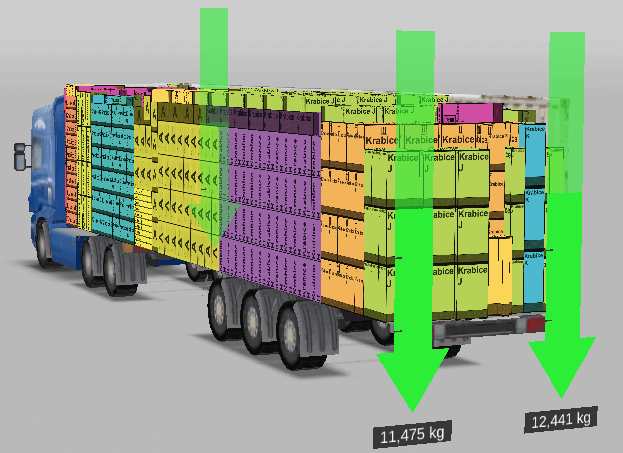How to load a truck
Loading a container seems like a relatively easy task. However, once you realize how many legal and safety issues there are to be followed, things get a little complicated.
First of all, you need to meet all the legal and safety requirements. Trucks have a maximum permissible load which can’t be exceeded. Not only are there maximum loads for trucks as a whole, but also each axle has its own maximum load. Even the weight difference between the left and the right side of the axle can’t differ much to preserve optimal drive-ability. In case you don’t meet the legal requirements, you’re at risk of a substantial fine.
State laws vary significantly throughout the United States. For example, in Rhode Island, you will be charged from $65 up to $125 per pound of an overweight load. In some states, vehicle registration and driver’s license may be suspended, or you may be responsible for damage done to a bridge. In Texas, you may even face prison time of 60 days or six months in case of second or third offenses, respectively. From this point of view, the costs of reloading the truck seem minor.
There are several ways to prevent these kinds of complications. Big companies have truck weight scales in their warehouses. Some modern trucks also have built-in axle weight sensors, or you can buy them and install them additionally. You can also calculate the axle weight manually using complicated formulas. An easy and fairly cheap alternative is using container and truck loading software like EasyCargo, which will not only calculate your axle loads, but also will find the best way to load the truck to make the most of your cargo space. That is also great because you will know the axle weights before actually loading the truck thus avoiding possible reloading.

The optimization of the axle weight
With this in mind, axle weights are just the beginning. You also need to fit the cargo in the truck somehow. While doing so, you need to take into consideration several conditions like stackability, the weight of individual items, or the possibility to turn or tilt the items. Sometimes it’s easy. Other times, shipment load lists repeat regularly, so the warehouse operators know the optimal ways to load them. However, there are also cases when even several years of experience are not enough to load the truck on the first attempt without previous calculations. In the past, warehouse operators used to calculate the optimal way with graph paper, ruler, and pen. Today, there are applications for truck and container loading, which will calculate the most optimal way to load your items so that the cargo space is utilized to its most capacity.

The axle weight limits calculation in EasyCargo software
EasyCargo will help you both with the optimization of the load plan and axle weights. On top of that, it supports the import of load items from an Excel sheet so that it won’t take you any additional time.




